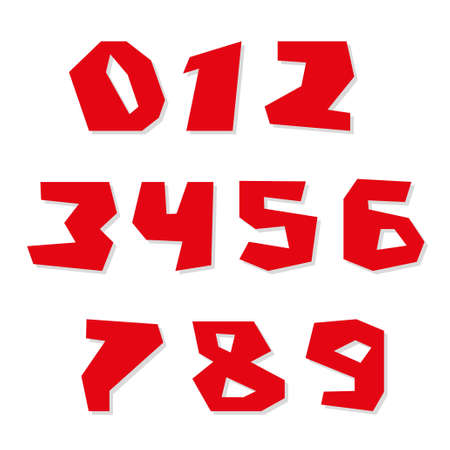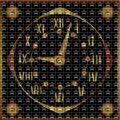Introduction to Numerology in the UK Academic Context
Numerology, the ancient study of numbers and their mystical influence on human life, has woven its way through various cultures for centuries. In the context of British academic life, numerology may initially seem far removed from the rigorous logic and empirical traditions that underpin education in the UK. However, both historically and in contemporary settings, numerology holds a subtle yet persistent presence within British society—including its schools and universities. From Shakespeare’s use of symbolic numbers to the curious rituals of students seeking luck before exams, numbers have always carried more than just quantitative value. Today, as students across the UK navigate the complexities of academic pressures, personal growth, and future ambitions, numerology offers a unique lens through which to interpret one’s educational journey. By exploring how personal year numbers can provide insight into cycles of opportunity or challenge, we set the stage for considering numerology not as a replacement for hard work, but as a supplementary tool—one rooted in tradition yet adaptable for modern student life in Britain.
2. Calculating Your Personal Year Number
If you’re keen to see how numerology might offer some perspective on your academic journey, calculating your Personal Year Number is a sensible place to start. This number gives insights into the general themes and opportunities you may encounter throughout the year – handy for planning everything from revision timetables to freshers’ week activities.
A Step-by-Step Guide
The process is straightforward and only requires your date of birth and the current calendar year. Here’s how students across the UK can work it out:
Step 1: Write Down Your Date of Birth
Let’s take an example: Suppose you were born on 14th October.
Step 2: Reduce Day and Month to Single Digits
Add together the digits of your birth day and month:
| Component | Calculation | Result |
|---|---|---|
| Day | 1 + 4 (for 14) | 5 |
| Month | 1 + 0 (for October) | 1 |
Step 3: Add to the Current Year (Reduced)
If we’re in 2024, add those digits together: 2 + 0 + 2 + 4 = 8.
Now, sum up all three numbers:
| Component | Result |
|---|---|
| Day Total | 5 |
| Month Total | 1 |
| Year Total | 8 |
| Total Sum | 14 |
If this result is a two-digit number, add those digits together again until you get a single digit: 1 + 4 = 5. That’s your Personal Year Number.
An Example in a UK Academic Context
Sophie is preparing for her A-levels at a comprehensive school in Manchester. Her birthday is 23rd March. For the academic year beginning September 2024, she calculates as follows:
| Date Component | Addition | Total |
|---|---|---|
| Day (23rd) | 2 + 3 | 5 |
| Month (March) | 0 + 3 | 3 |
| Year (2024) | 2 + 0 + 2 + 4 | 8 |
| Total Sum: | 16 → 1+6=7 | |
Sophie’s Personal Year Number is 7, which numerologists interpret as a year for reflection and deeper learning – quite apt for her final year before university applications. By understanding this number, Sophie could consider tailoring her study approach or extracurricular choices accordingly.
This step-by-step method can be easily applied by any UK student—whether you’re revising for GCSEs in Cardiff, starting uni in Edinburgh, or navigating sixth form college in Birmingham. Once you have your Personal Year Number, you’ll be ready to explore what it means for your academic life in Britain.

3. Understanding Personal Year Numbers: Meanings and Implications
Personal year numbers in numerology provide annual themes that can help students better anticipate the rhythm of their academic journey within the UK educational system. Here’s a breakdown of what each personal year number signifies, with a nod to familiar milestones such as autumn term, spring exams, and summer holidays.
Personal Year 1: New Beginnings and Fresh Starts
This is a year for initiative and leadership—perfect for embarking on new courses, joining societies, or even moving into university accommodation. If you’re starting your first year at uni or taking on a new subject, the energy supports setting intentions and mapping out your academic goals.
Personal Year 2: Building Relationships and Collaboration
Year 2 emphasises teamwork, diplomacy, and forming connections with peers and lecturers. Group projects during Michaelmas or Lent terms might feel more manageable. It’s also an ideal time to seek feedback from tutors or collaborate on research assignments.
Personal Year 3: Expression and Creativity
This cycle encourages self-expression—handy when giving presentations or participating in student debates. Use this period for creative coursework, arts modules, or getting involved in campus events, especially as the spring term brings opportunities for exhibitions and performances.
Personal Year 4: Discipline and Foundation-Building
A year ruled by structure and diligence, matching well with revision season leading up to Easter exams. Focus on timetabling study sessions in the library, solidifying your understanding of core material, and preparing methodically for assessments.
Personal Year 5: Change and Adaptability
This number signals shifts—think placement years, study abroad opportunities, or changes in course modules. Be open to adapting your routines during transitions between terms or if faced with unexpected timetable changes after half-term breaks.
Personal Year 6: Responsibility and Community
A focus on service and responsibility—perhaps you’ll take on committee roles in student unions or volunteer locally. Balancing academic workload with community involvement is key; this year often coincides with final-year projects or dissertation planning.
Personal Year 7: Reflection and Research
This introspective phase suits deep research work, perfect for dissertation writing or prepping for finals. You may find yourself spending more time in the archives or library stacks during Trinity term. Take advantage of university support services if stress peaks ahead of major assessments.
Navigating Milestones Across the British Academic Calendar
By recognising your personal year number’s influence, you can better prepare for significant moments—whether it’s freshers’ week excitement, exam season nerves, or long summer holidays. Numerology doesn’t replace hard work but offers an extra layer of insight as you move through each academic chapter.
4. Applying Numerology to Academic Planning
Embracing numerology within the British academic context can be surprisingly practical, especially when you use your personal year number as a subtle guide for setting goals, choosing modules, or preparing for those all-important assessments. Below are some actionable ways to incorporate numerological insights into your university journey—always keeping a respectful nod to local customs and expectations.
Personal Year Numbers and Academic Strategy
Your personal year number, calculated from your birth date and the current year, reflects the theme or energy of your year. Aligning your academic plans with this energy can help you make choices that feel more intuitive and less forced—especially useful given the structured nature of UK universities, where module selection and assessment periods are set well in advance.
| Personal Year Number | Recommended Focus | Example in British Academic Life |
|---|---|---|
| 1 | New Beginnings | Take on new modules, join societies during Freshers Week, volunteer as course rep. |
| 2 | Collaboration | Form study groups, seek peer feedback, participate in seminars actively. |
| 3 | Creativity & Expression | Select modules with presentations or creative coursework; contribute to student media. |
| 4 | Organisation & Discipline | Create revision timetables, book library slots early for exam season, keep up with reading lists. |
| 5 | Adaptability & Experience | Consider study abroad options (Erasmus), attend guest lectures or career fairs. |
| 6 | Responsibility & Support | Tutor younger students, volunteer for campus welfare roles, balance studies with part-time work. |
| 7 | Reflection & Research | Pursue independent projects, spend time in archives or quiet study areas like the Bodleian or Senate House Library. |
| 8 | Achievement & Ambition | Aim for scholarships or leadership roles in societies; plan dissertation topics strategically. |
| 9 | Completion & Transition | Prepare for graduation applications; wrap up ongoing commitments thoughtfully. |
Navigating Module Selection and Goal Setting the British Way
The UK system often encourages students to specialise earlier than elsewhere, so using numerology can add a layer of self-awareness when choosing between core and optional modules. For instance, if you’re in a ‘5’ year (change and flexibility), you might opt for interdisciplinary modules or those with varied assessment types—making full use of open days and taster sessions typical at British unis. Conversely, during a ‘4’ year (structure), prioritise modules that build foundational knowledge—even if they seem less exciting at first glance.
Preparation for Assessments: Blending Tradition with Intuition
The academic calendar in the UK is punctuated by revision periods, coursework deadlines, and exam weeks—sometimes accompanied by classic rituals like late-night library runs or “pub quiz” study breaks. Use your personal year number as a framework: for example, a ‘7’ year could mean scheduling extra solo revision sessions in quiet corners of the library (perhaps even during “reading week”), while a ‘2’ year might see you joining group study sessions at the student union café. Stay mindful of etiquette: Brits value punctuality and preparation—whether it’s submitting assignments via Turnitin or turning up on time for group meetings.
Cultural Considerations: Respecting Local Practices While Personalising Your Path
While numerology can offer valuable self-insight, remember to balance it with established expectations: check university handbooks for official guidance and consult tutors before making major decisions based solely on intuition. Ultimately, blending numerological wisdom with the structure of British academic life allows you to set realistic targets while also honouring your unique journey through university.
5. Case Studies: British Students’ Experiences with Numerology
To illustrate how numerology fits into British academic life, let’s look at a few genuine anecdotes from UK students who’ve turned to personal year numbers for guidance. These stories reflect not just the application of numerology, but also the subtle ways British culture shapes these experiences.
Anna’s Gap Year Decision
Anna, a History student from Manchester, was torn between heading straight to university or taking a gap year. After a friend introduced her to numerology, she discovered she was entering a personal year 7—traditionally linked with introspection and learning. “It felt very British to deliberate and overthink,” Anna admits, “but knowing my year number gave me permission to step back and focus on self-discovery without feeling I was falling behind.” She spent her gap year volunteering locally, later saying it helped her transition into uni with more confidence.
James and Exam Season Stress
James, studying Engineering in Birmingham, struggled with anxiety during exam periods. Curious about alternative coping strategies, he read up on personal year numbers and realised he was in a personal year 4—a time associated with hard work and building foundations. “It was oddly comforting,” he says. “In Britain, we have this ‘keep calm and carry on’ attitude. For me, numerology reinforced that putting in the graft now would pay off.” James started using his planner more intentionally and joined a study group, which helped him pass his modules.
Priya’s Social Life at Uni
Priya moved from London to Edinburgh for university. In her second year (a personal year 3), she noticed an uptick in social invitations and creative opportunities. “British uni life is already packed with societies and socials,” Priya explains, “but numerology made me feel less guilty about prioritising fun and new friends that year.” She took on a leadership role in the Drama Society and found her confidence grew alongside her network.
Cultural Nuances in Practice
While numerology isn’t mainstream in UK student culture, these cases highlight how it can complement traditional British values—such as thoughtful decision-making, resilience, and balancing work with play. For many students, referencing their personal year number becomes another tool for making sense of academic pressures and transitions.
6. Critical Reflections and Integration
Navigating British academic life with numerology invites both curiosity and scepticism, which is characteristic of the UKs pragmatic approach to alternative perspectives. While some students may find genuine comfort or motivation through personal year numbers, it is essential to maintain a balanced outlook. The British educational environment values evidence-based practices, critical thinking, and open discussion; therefore, integrating numerology mindfully within ones routine should be done with careful consideration.
Mindful Use of Numerology
Rather than seeing numerology as a deterministic guide, students can use it as a reflective tool—perhaps as an icebreaker in group discussions or as a prompt for self-reflection at the start of term. By framing numerological insights as one perspective among many, learners uphold academic integrity while still enjoying the personal benefits these systems may offer.
Staying Grounded
It is important not to let numerological interpretations overshadow practical actions such as study planning, seeking academic support, or engaging in societies and extracurriculars. Integrating numerology should supplement—not replace—proven strategies for success. This grounded approach resonates with the British tendency to balance tradition with innovation, and curiosity with rationality.
Respect for Diverse Perspectives
British universities are increasingly diverse, hosting students from a wide range of backgrounds and belief systems. Discussing numerology respectfully within this context means acknowledging its value to some while understanding that others may view it with reserved amusement or polite indifference. Embracing this diversity encourages a culture where alternative viewpoints can be explored thoughtfully without compromising academic rigour.
In conclusion, critical reflection ensures that numerology remains an optional, supportive element of student life—one which can coexist with the analytical mindset encouraged throughout British higher education. By integrating it mindfully and staying grounded in evidence-based practice, students can enrich their academic experience without losing sight of what truly matters.
7. Further Resources and Support
If you’re keen to dive deeper into numerology or explore how personal year numbers might support your academic journey in the UK, a wealth of resources is available locally. Here’s a curated list designed specifically for students navigating British academic life.
Books to Get You Started
- “Numerology: With Tantra, Ayurveda, and Astrology” by Harish Johari – This comprehensive text offers insight into the basics and advanced concepts of numerology, often found in major British bookstores such as Waterstones and Foyles.
- “The Complete Book of Numerology” by David Phillips – Widely available in UK libraries and online, this book provides a practical approach to applying numerological principles in everyday life, including studies.
- “Numerology Made Easy” by Hilary H. Carter – A straightforward guide with a British perspective, ideal for beginners.
UK-Based Numerology Societies and Communities
- The Association of Professional Numerologists (APN) – Headquartered in the UK, APN offers workshops, newsletters, and an annual conference; perfect for those seeking formal guidance or professional development.
- Londra Esoteric Society – Based in London, this group regularly hosts talks and events on numerology and other esoteric sciences relevant to student interests.
- Meetup.com Groups – Search for “numerology” in major university cities (London, Manchester, Edinburgh) to find local gatherings or discussion groups where you can connect with like-minded peers.
University Resources
- Student Wellbeing Services – Many UK universities provide holistic wellbeing resources that occasionally include workshops on mindfulness, astrology, or numerology. Check your university’s events calendar or student union notices.
- Library Special Collections – University libraries such as the Bodleian (Oxford) or Cambridge University Library sometimes house rare texts on numerology; ask a librarian for assistance with your research.
- Counselling and Academic Skills Centres – Some universities offer tailored coaching sessions that may integrate numerological insights if requested as part of a personalised support plan.
Online Platforms & Courses (UK-Friendly)
- FutureLearn – Occasionally features introductory courses on numerology or related personal development topics from UK universities.
- Open University – Known for its open-access ethos, it sometimes covers aspects of numerology within broader personal growth courses.
- Eventbrite UK – Regularly lists webinars and live workshops with UK-based practitioners.
Final Thoughts on Seeking Guidance Locally
The study of numerology can be both a solitary pursuit and a collaborative exploration. The UK’s vibrant academic environment encourages curiosity—whether through books, societies, or campus resources. Don’t hesitate to reach out to university staff or join local communities; you’ll find plenty of support as you weave numerological insight into your British academic life.


